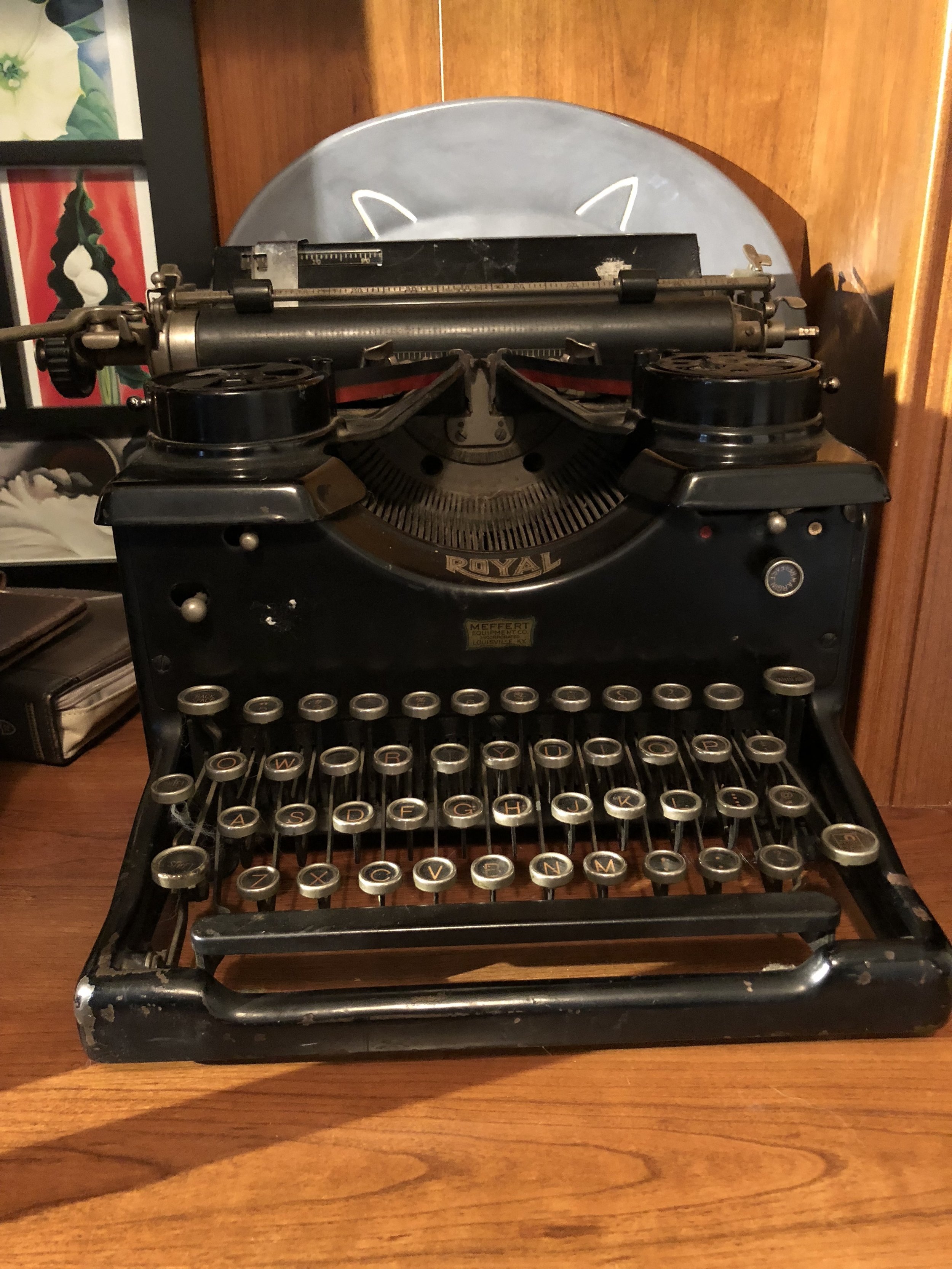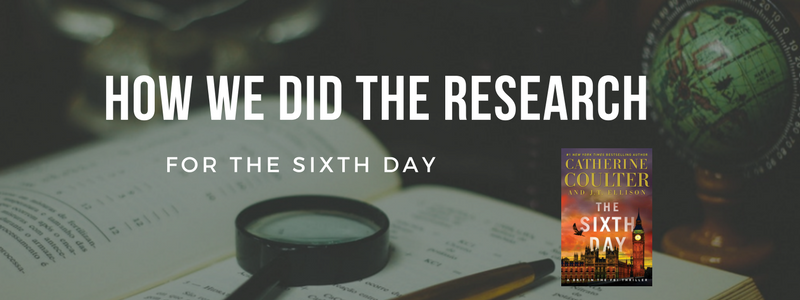Having a new book baby out in world is a mixed bag of emotions. It feels a bit like jumping off a cliff with no parachute: sheer excitement coupled with abject terror. Why? Well, because the book is no longer your own. It’s one thing to build a book. It’s something different to have strangers read it.
So let’s talk about building a book. THE SIXTH DAY hit shelves Tuesday, and the research that went into it was astounding.
For me, writing an international thriller with historical components is sort of like making French onion soup out of apples — in other words, an uphill battle. Or magic. I like the magic analogy better, let’s go with that.
Even though I’m not doing it alone, this magic gets its essence from the minute details. Elizabeth George just did an interview in which she described the moment a piece of her latest book came together for her:
“Seeing the place is really helpful in developing the plot, because if I don’t go, there are things I simply won’t know,” she explains. “For example, for the new book I went to Ludlow, and when I visited the police station, it was closed. There was an intercom and video-camera setup at the building which connected people with the police and emergency services. That became a hugely important plot point in the book.”
For me, physical proximity is the secret behind good research. You can study everything, read all the books, read all the articles, but if you can actually go to the spot you’re writing about, plot points can appear out of the ether. I can give you oodles of moments this has happened to me, book after book. Heck, a trip to Scotland saved WHERE ALL THE DEAD LIE — I had the winter colors all wrong. Trees, grass, flowers, skies… How embarrassing would that have been?
I know travel isn’t always possible, so at the very least, a few hours spent on Google Earth will go a long way. You won’t get all five senses (and trust me, how someplace smells creates all kinds of interesting ideas), but you’ll at least see what people wear, what it looks like when it rains, etc.
And the facts you see in the novel are fractional compared to the work done on the back end. There’s a reason we call research an iceberg, after all. You only see the tip. I’ve literally spent days on certain topics in order to put one single fact into the manuscript. I like to joke I get a Ph.D. on every book, but it really is true.
I have a somewhat organized way of researching my novels.
If I’m working on research online, as I’m going deep into a topic, any link that I touch that has any sort of relevance to the book immediately gets bookmarked. If I know it’s relevant, it goes into its own folder in Evernote. If it’s possibly relevant, it goes to Instapaper, and then gets shuttled into Evernote if I find anything worthwhile. I also sign up for newsletters, subscribe to online magazines, join Facebook groups. Anything that will allow me hands-on experience with the people who actually do the work or live in the world I’m researching. (Dark Web for hacking info, anyone? 😈)
Once the research is conducted, I usually print it out and put it in a huge Circa binder. That way, if the internet crashes, I have my research. And of course, let’s not forget the books — easy to work with there, just slap a Post-it note and write it up in my notebook. Same for movies and television shows related to the story. I have two massive bookshelves in my office that cover everything from the occult to FBI to falconry. I call it the database.
For THE SIXTH DAY, I have over 200 individual links in my Evernote. From hacking to falcons to the Voynich to hemophilia to LSD, they are a roadmap of memories to building a book. I love that record, too. It’s as evocative as a playlist for me. I can remember the exact moment I saw a certain story and what idea it triggered — and often, I make a note about that in my files, for posterity.
Hopefully, I get it all right. But as huge as these novels are, sometimes I blow it. A fact gets reversed, or the source material is incorrect, or I just plain read and interpret wrong. Hopefully, those mistakes are minimal. Because ugh! Fingers crossed it’s all perfect in this one.
I hope you enjoy all the crazy research that went into THE SIXTH DAY. Catherine and I had a blast with it.
Now, on to book 6! (It only has 130 links bookmarked so far…)
Writers, how do you do your research? And Readers, is there anything that drives you crazy on research-heavy books? What do you love to see?
















